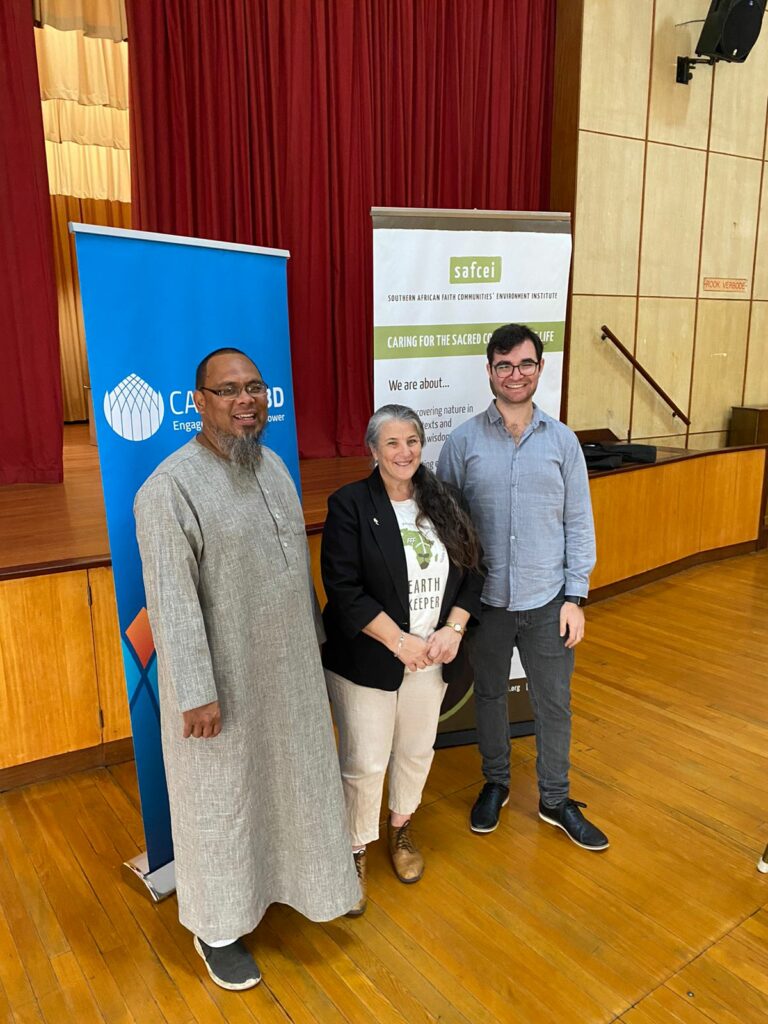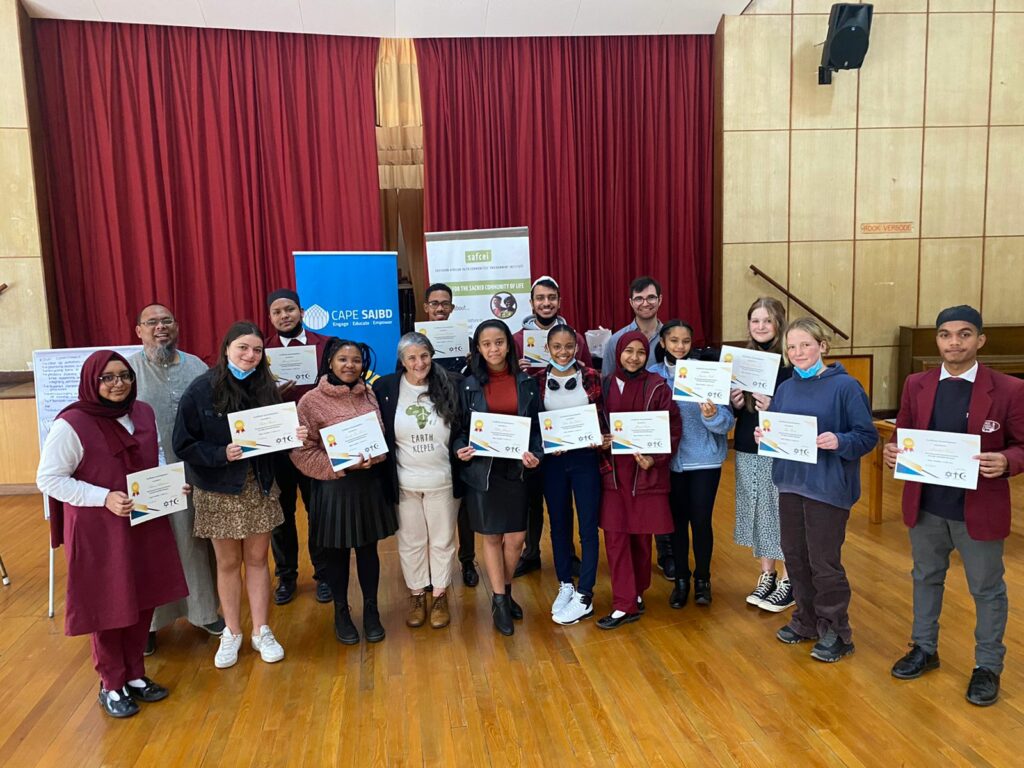Youth Day Workshop: How to become a Climate Activist through Interfaith Engagement
- Published:
On Sunday 12 June, 15 diverse Cape Town teenagers participated in a workshop to learn how to become a Climate Activist through Interfaith engagement.
The group consisted of 5 Muslim, 5 Christian and 5 Jewish high school learners. They gathered at the Groote Kerk Complex in Kloof St, Cape Town, where Ds Riaan De Villiers had kindly made a hall available to the group.
The workshop was convened by Craig Nudelman, the recently appointed Interfaith Officer at Cape SA Jewish Board of Deputies, and Imam Salieg Isaacs, a Safcei Board member.
 L-R: Imam Salieg Isaacs (Safcei Board member), Rev Berry Behr (Safcei), Craig Nudelman (Cape SA Jewish Board of Deputies).
L-R: Imam Salieg Isaacs (Safcei Board member), Rev Berry Behr (Safcei), Craig Nudelman (Cape SA Jewish Board of Deputies).
The event was not open to the public, but was recorded ahead of Youth Day on 16 June when a video of the workshop will be released.
Safcei’s Faith Leader Liaison, Rev Berry, was invited to facilitate the workshop. After an introductory process, Rev Berry invited the participants to share what is common to all of them about their experience of Cape Town, despite the geographic differences of their locations. Nature featured strongly – everyone spoke about the mountain, the sunsets, the sky, the beauty we live with.
From there it was easy to speak about the way humans mess up the environment. Waste is a huge issue in Cape Town. We spoke about access to energy, the impact of extractive energy sources on the environment, and we all remembered the threat of Day Zero when Cape Town faced a waterless future.
In the 1800’s the colonialists who had set up home at the Cape decided to build tunnels to channel the four rivers and 36 streams from Table Mountain towards the Castle of Good Hope, where it flowed under the Castle and out to sea. These were the sweet waters of the Camissa River. Today, the water is contaminated with sewage and waste the moment it reaches the tunnels. Without those tunnels literally stealing the water of Cape Town, would we have ever had the need to face Day Zero?
The 15 teenagers were split into three groups of five where they shared with their new friends the climate issues they faced in their respective areas. When it came to the report back, groups spoke about waste management, sanitation issues, traffic pollution, noise and violence.
Then we looked at what the link is between the environment and people of faith. We agreed that people of faith have a strong moral imperative to care for all of God’s Creation, and also that all our Sacred Texts all call us to do this. We talked about the power of collective action – petitions, protests and marches, and about the power of individual action – speaking to people, picking up rubbish in the street, not littering. Conversations both with peers and with people from different age groups, backgrounds, religions and areas, was a key part of generating common purpose and unity.
Finally, the group created a manifesto which everyone contributed to, in which they committed to working together as human beings to reduce pollution, advocate for renewable energy, and make healthy choices around food and transport options.
 Youth Day workshop on How to become a Climate Activist through Interfaith engagement, 12 June 2022.
Youth Day workshop on How to become a Climate Activist through Interfaith engagement, 12 June 2022.
Who we are

SAFCEI (Southern African Faith Communities’ Environment Institute) is a multi-faith organisation committed to supporting faith leaders and their communities in Southern Africa to increase awareness, understanding and action on eco-justice, sustainable living and climate change.
Featured Articles
-

South Africa: Who Ends Up Paying If DMRE Cooks the Price of Nuclear Power?
-

South Africa’s nuclear energy expansion plans continue to draw criticism, environmental NGOs chew over legal challenge
-

Earthlife Africa and SAFCEI respond to latest unsettling nuclear news regarding the ministerial determination
-

Open Wing Alliance Africa (Virtual) Summit 2023
-

The Green Connection and SAFCEI respond to energy minister's divisive and deflecting comments
-

Job Vacancy: FLEAT Coordinator







